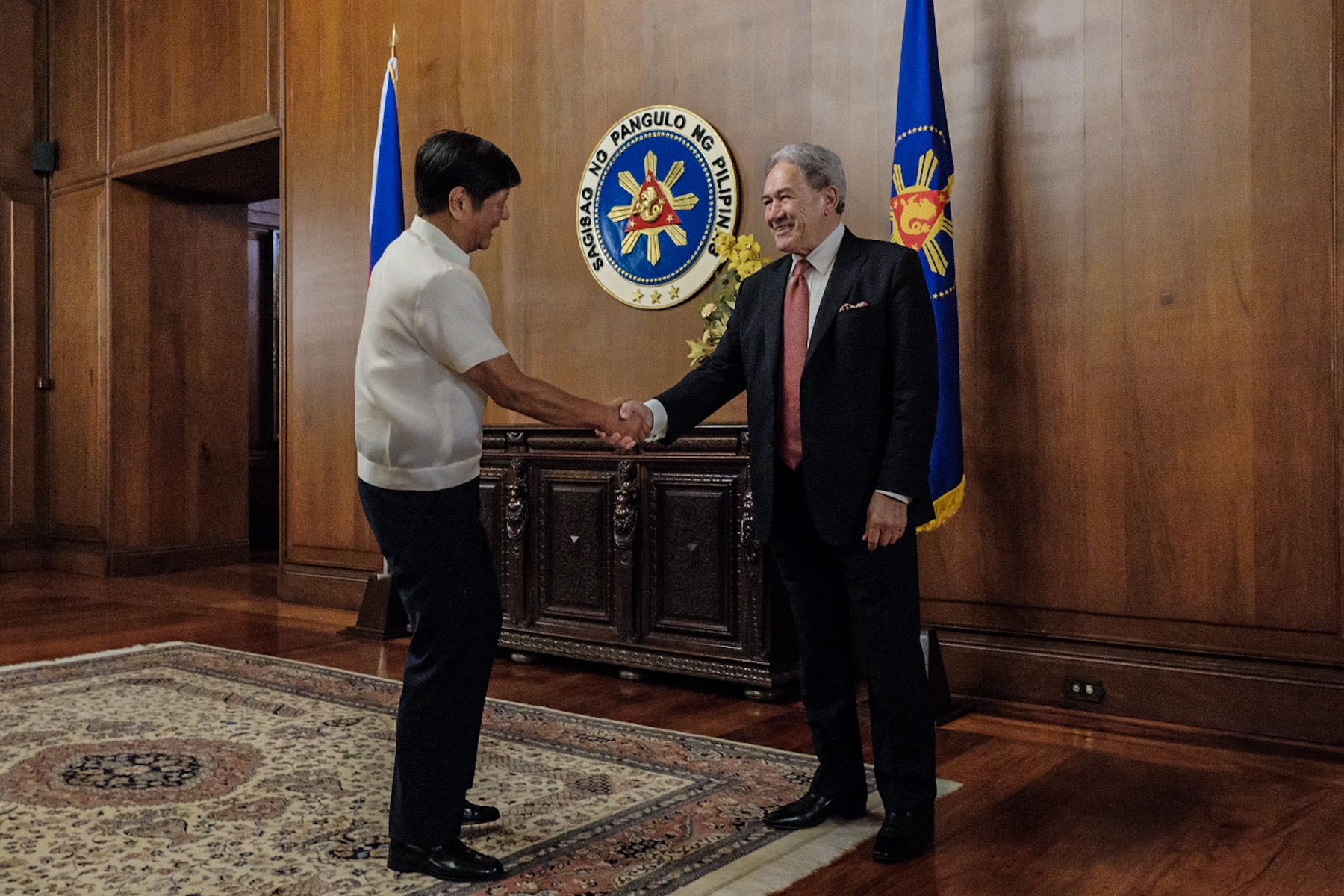Marcos eyes geopolitical dialogue, expanded ties with New Zealand
President Marcos expressed hope that the Philippines and New Zealand could further discuss geopolitical issues and boost cooperation in agriculture, trade, and investment.

Marcos told New Zealand Deputy Prime Minister and Minister for Foreign Affairs Winston Peters, who paid a courtesy call in Malacañan on Tuesday, June 11, that he hopes both sides could further capitalize on what was initially discussed during Prime Minister Christopher Luxon’s official visit to the Philippines in April.
“Mr. Prime Minister, I’m, of course, very pleased to be able to welcome you to Manila after the very good visit that your new Prime Minister had here with us just a few weeks ago,” Marcos told Peters.
“And at which time they — we agreed on many things and one of which was that the situation in our part of the world requires that — shall we say the smaller countries get together and have a response or a joint positioning when it comes to these geopolitical issues that we are — this complicated geopolitical issues that we are facing," he added.
Marcos also said he and Luxon tackled other areas such as agriculture, trade, and possible investments, as well as the ongoing current expansions and operations in New Zealand.
He further hoped that Peters would keep in touch with some of Filipino government officials and the private sector “to develop some of these ideas that we spoke about with your Prime Minister.”
For his part, Peters thanked the President for the warm welcome, telling him that after Prime Minister Luxon’s visit to Manila, “they had some very productive talks.”
During Luxon’s official visit to the Philippines, both leaders agreed to strengthen bilateral ties, elevating the relationship to a Comprehensive Partnership by 2026 and emphasized cooperation in defense, security, and maritime affairs, signing agreements and committing to combat common threats.
Trade and economic relations were bolstered with goals of increasing two-way trade by 50 percent by 2030 and enhancing collaboration in various sectors.
They also highlighted people-to-people connections, renewable energy, and climate change initiatives, and discussed regional and global developments, including concerns over the South China Sea, the Middle East humanitarian crisis, Russia’s aggression against Ukraine, and the situation in Myanmar.
The Philippines and New Zealand established formal diplomatic relations on July 6, 1966.